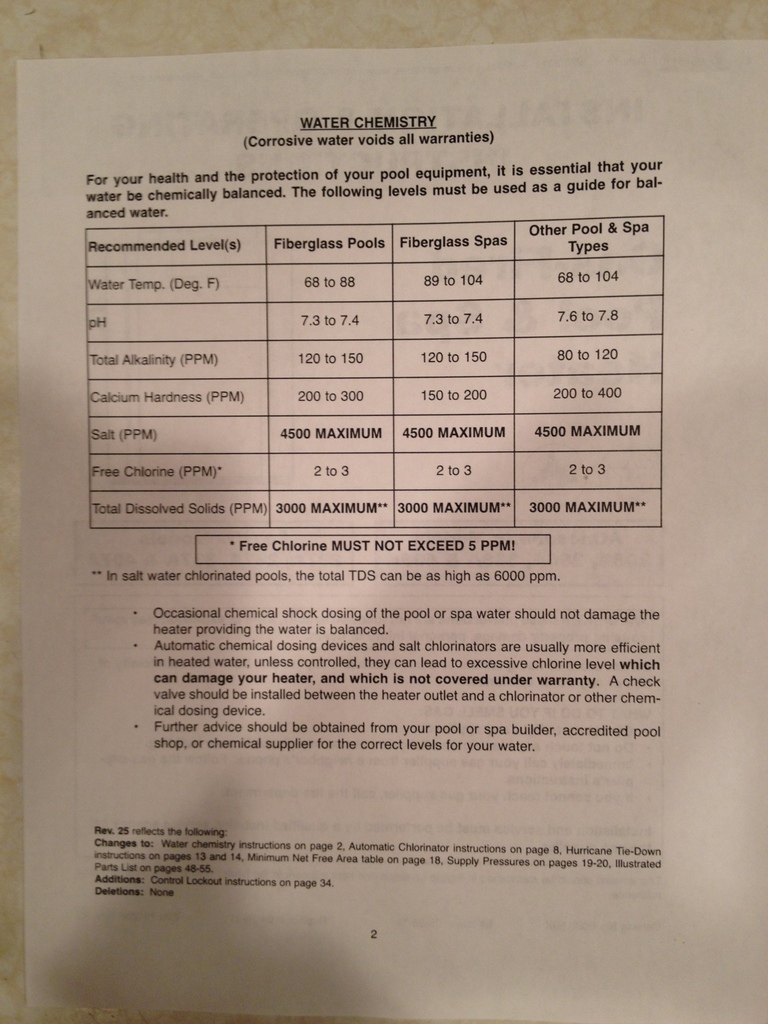I'm a new first-time pool owner with a newly-installed AGP and a natural gas pool heater (Raypak 266). I have a TF100 test kit and plan to use TFPC methods to balance my water. The heater manual gives chemistry guidelines as conditions of the warranty. I'm concerned about how restrictive they are. The ones that apply to my pool are in the right column on the page below:

I raised my tap water pH from 7.2 to 7.5 by aerating with the garden hose while filling the pool. I still need to add some Borax to get to at least 7.6.
FC can't exceed 5, so I need to take care to keep CYA low; I'm going to aim for 40 and try to keep it there so that my target FC level will be 5 or less. I will probably use trichlor once or twice each year to go on vacation-- rarely for more than a week. I expect to offset the CYA in the trichlor by normal backwashing of my sand filter and by lowering the water level each winter. The bullet point about occasional shocking is vague, so I constructed a bypass to take the heater out of the loop when raising to shock level.
What surprises me is the CH requirement of 200-400. Mine is currently 100, so I'll need to raise it. I would have thought that low CH would be best for a heater, to minimize scale on the heat exchanger.
I'm keeping a log of all my test results and chemical additions. Am I taking the right steps to keep my pool water clean while also protecting my heater and its warranty? Is deliberately raising CH good for the heater, and if so, why?
I raised my tap water pH from 7.2 to 7.5 by aerating with the garden hose while filling the pool. I still need to add some Borax to get to at least 7.6.
FC can't exceed 5, so I need to take care to keep CYA low; I'm going to aim for 40 and try to keep it there so that my target FC level will be 5 or less. I will probably use trichlor once or twice each year to go on vacation-- rarely for more than a week. I expect to offset the CYA in the trichlor by normal backwashing of my sand filter and by lowering the water level each winter. The bullet point about occasional shocking is vague, so I constructed a bypass to take the heater out of the loop when raising to shock level.
What surprises me is the CH requirement of 200-400. Mine is currently 100, so I'll need to raise it. I would have thought that low CH would be best for a heater, to minimize scale on the heat exchanger.
I'm keeping a log of all my test results and chemical additions. Am I taking the right steps to keep my pool water clean while also protecting my heater and its warranty? Is deliberately raising CH good for the heater, and if so, why?

